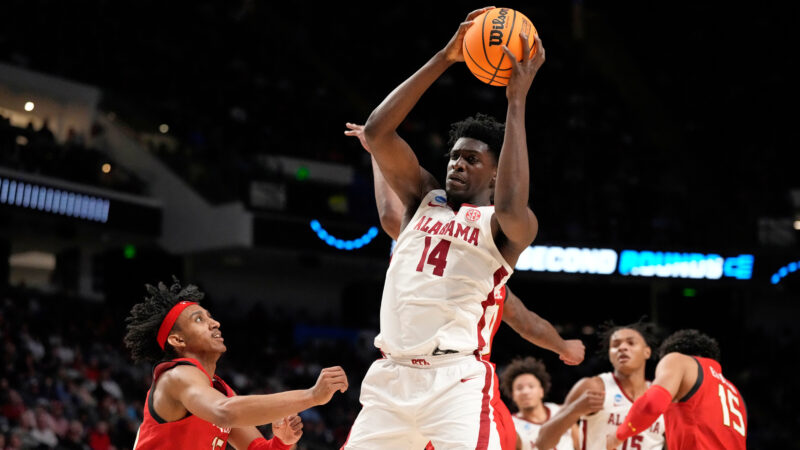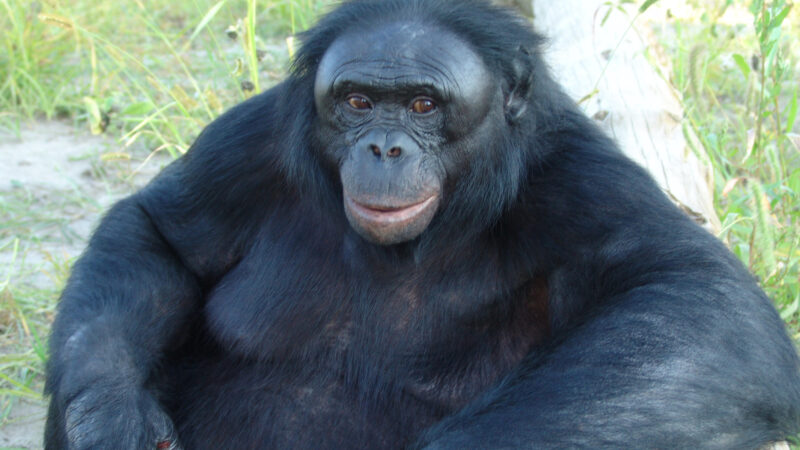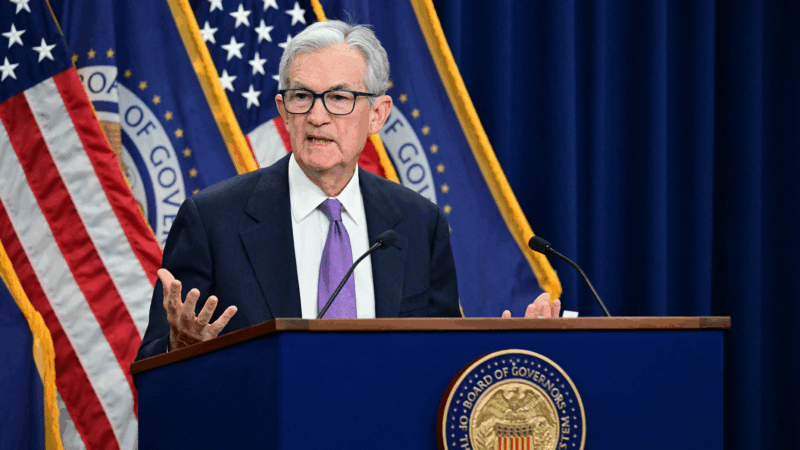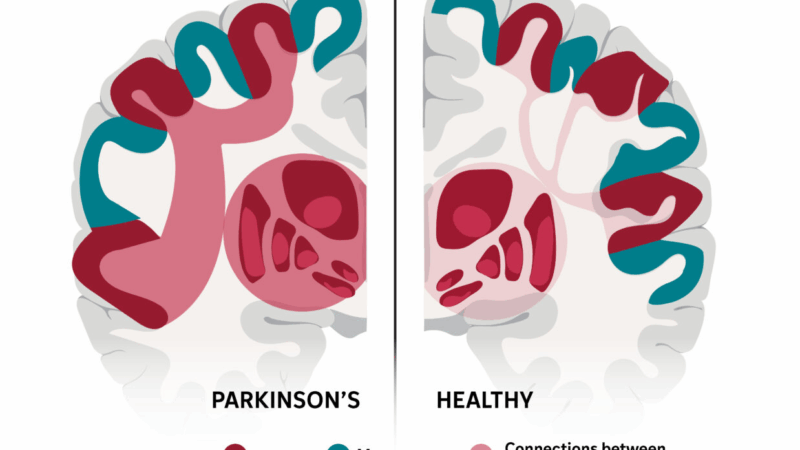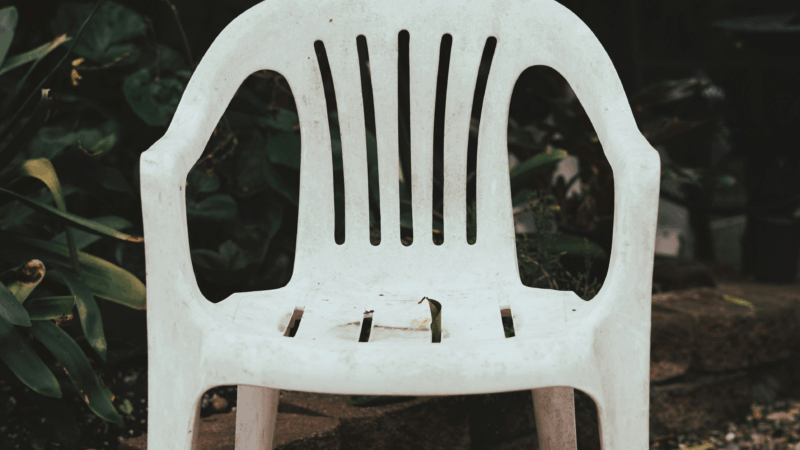How the Irish band Kneecap went from rising hip-hop group to global lightning rod
LONDON – When Kneecap performed at Glastonbury music festival this year — a performance that the British Prime Minister opposed before the band even took the stage — bandmember Mo Chara told the crowd, “us three have no right to be on this stage in front of this many people, rapping predominantly in a language that even people at home don’t even speak.”
Kneecap, three young men from Northern Ireland who rap in Irish, has risen to prominence in recent years, with controversy surrounding its shows and political statements.
The hip-hop trio was formed in 2017, composed of bandmembers Mo Chara, Móglaí Bap and DJ Próvaí, who come from Belfast. The band is part of the generation known as the “ceasefire babies,” who grew up in the aftermath of the 1998 Good Friday Agreement that formally ended the decades of violence in Northern Ireland known as the Troubles. The group’s lyrics span everything from working class youth culture in Belfast, to Irish language rights, to a desire for Northern Ireland to join the Republic of Ireland.
Why the trio raps in Irish
Kneecap says that rapping in Irish, long marginalized under British rule in Northern Ireland, is a political choice. When NPR met the band at an Irish-language cultural center in west Belfast in 2023, bandmember Mo Chara explained, “It’s impossible not to be political here [in Northern Ireland] if you’re going to speak Irish. It’s very hard not to be political growing up in Belfast.”
The Irish language — which the British banned from Northern Irish government and courts under a recently repealed 18th century law — is now seeing a revival, especially among young people. Northern Ireland has seen a steady rise in Irish speakers in recent years, and Irish was made an official language of the region in 2022, where about 12% of the population now speak it.
Kneecap has been credited for leading what some have called an “Irish language revolution.”
As well as being a political choice, the band says rapping in Irish is also a creative one. Kneecap has pushed the boundaries of the language in rap, with Mo Chara telling NPR that Irish isn’t “just about fiddles and shamrocks.”
“Our youth culture now involves a lot more paraphernalia and drugs,” says Móglaí Bap. “We had to create new words so that we could talk about these things. That was part of the band, creating this new vocabulary that didn’t really exist.”
The band’s debut song, “C.E.A.R.T.A,” means “rights” in Irish. Kneecap says it was born out of a night when Móglaí Bap and his friends were out spray-painting around Belfast during a protest in support of the Irish language. It’s about the right to speak Irish, Móglaí Bap says, but it’s also about “the right for us to get off our heads, to get high.”
The band’s influences are wide-ranging, from U.S. hip-hop to Irish rebel music. The members grew up listening to Irish rebel songs, says Mo Chara. “These were songs that were about the unification of Ireland,” he says. “They were very anti-British involvement in Ireland.”
Mo Chara cites songs like “Come Out Ye Black and Tans“, a 1920s Irish rebel song about standing up to a notoriously brutal British police force named for the color of their uniforms, who were infamous for killing Irish civilians during the Irish War of Independence in the early 1920s. Móglaí Bap says the song, “talks about this army that came from England that went out murdering people,” and says that “it would be seen today to have a hip-hop theme to it.”
Kneecap’s own music talks about a desire for Northern Ireland to be freed from British rule, too. One of the group’s biggest hits is titled “Get Your Brits Out.”
A semi-fictionalised film about the band’s origins — in which the members star as themselves — won critical acclaim and a string of awards, including a BAFTA earlier this year.
How the band has attracted controversy
The band is also vocal in its criticism of Israel, and call Israel’s war in Gaza a genocide — statements that have drawn the ire of politicians and public figures in the UK and beyond.
At Coachella this year, Kneecap led the crowd in chants of “Free Palestine” and ended the set projecting pro-Palestinian and anti-Israel messages on the screen, including one that said “Israel is committing genocide against the Palestinian people,” and, “It is being enabled by the US government who arm and fund Israel despite their war crimes.” The set attracted criticism, with some, including Sharon Osbourne, calling for the band’s U.S. visas to be revoked.
Soon after the Coachella set, two older videos surfaced online from past concerts, which appeared to show band members shouting “up Hamas, up Hezbollah” and saying “the only good Tory is a dead Tory,” referring to lawmakers from Britain’s center-right Conservative party. British counter-terrorism police said they were investigating the band and Mo Chara was later charged with a terrorism offence, for allegedly holding up a flag in support of Hezbollah, which is a proscribed terrorist organization in the U.K.
In a statement on X, Kneecap said: “we do not, and have never, supported Hamas or Hezbollah. We condemn all attacks on civilians,” and “we reject any suggestion that we would seek to incite violence against any MP or individual.” The group said the videos had been “taken out of all context” and that there had been a “smear campaign” against the band following its Coachella performance.
The band saw some of its shows cancelled following the terror charge. Some politicians said Kneecap shouldn’t be allowed to perform at Glastonbury, including British Prime Minister Keir Starmer who said it would not be “appropriate.”
In the end, Glastonbury organizers said the Kneecap performance would go ahead. The BBC, which broadcasts the festival live every year, said it would not broadcast the Kneecap show live but later made it available to watch online. In a statement, the BBC said “whilst the BBC doesn’t ban artists, our plans ensure that our programming meets our editorial guidelines.”
The band drew a crowd of hundreds of thousands, and it used the set to reiterate its support for Palestinians in Gaza and to hit back at the band’s critics, beginning with a montage of the various condemnations Kneecap received from both sides of the Atlantic. At one point the band led the crowd in chants of “F*** Keir Starmer” and described the charge against Mo Chara as a “trumped up terrorism charge.”
Mo Chara drew parallels between the Irish struggle and the plight of Palestinians in Gaza, telling the crowd that, “the Irish suffered 800 years of colonialism under the British state,” adding, “we understand colonialism and we understand how important it is for solidarity internationally.”
British police have now opened a criminal investigation into Kneecap’s Glastonbury set “relating to hate crimes,” alongside another set by British punk band Bob Vylan, in which the lead singer, Bobby Vylan, led the crowds in chants of “death, death to the IDF,” referring to the Israeli military. The police have not said which part of either set would be subject to criminal investigation.
Judge rules 7-foot center Charles Bediako is no longer eligible to play for Alabama
Bediako was playing under a temporary restraining order that allowed the former NBA G League player to join Alabama in the middle of the season despite questions regarding his collegiate eligibility.
American Ben Ogden wins silver, breaking 50 year medal drought for U.S. men’s cross-country skiing
Ben Ogden of Vermont skied powerfully, finishing just behind Johannes Hoesflot Klaebo of Norway. It was the first Olympic medal for a U.S. men's cross-country skier since 1976.
An ape, a tea party — and the ability to imagine
The ability to imagine — to play pretend — has long been thought to be unique to humans. A new study suggests one of our closest living relatives can do it too.
How much power does the Fed chair really have?
On paper, the Fed chair is just one vote among many. In practice, the job carries far more influence. We analyze what gives the Fed chair power.
This complex brain network may explain many of Parkinson’s stranger symptoms
Parkinson's disease appears to disrupt a brain network involved in everything from movement to memory.
In a world built for sitting, here’s how to stay active — even when stuck inside
In the office, classroom and living room, working and relaxing mean sitting still. Our bodies evolved without chairs. Here are some tips for getting out of your seat and moving — even on cold days.


